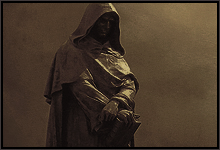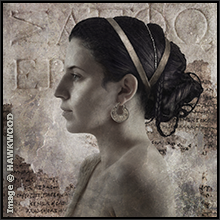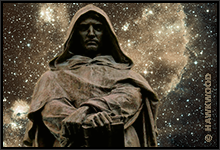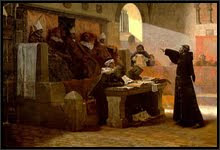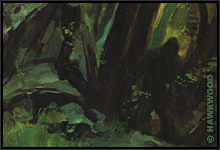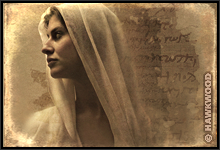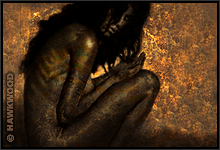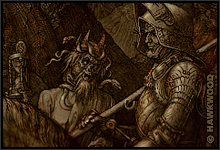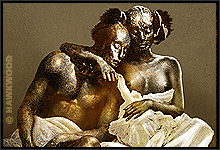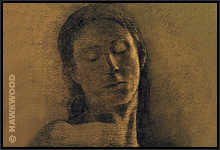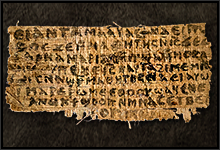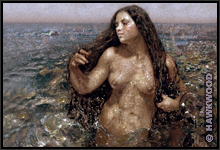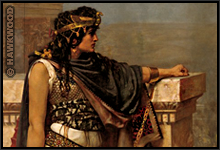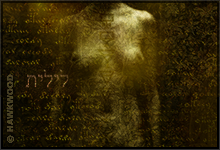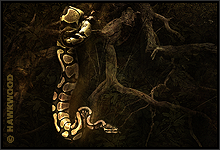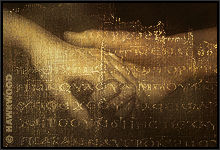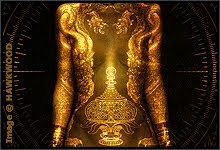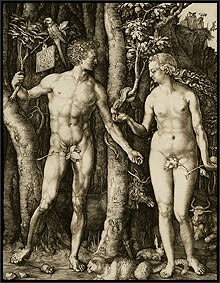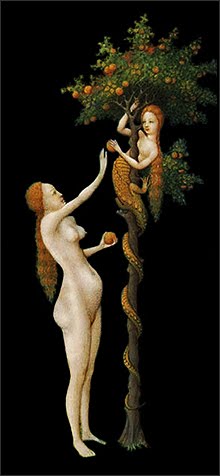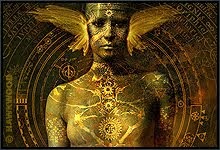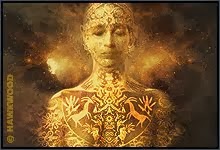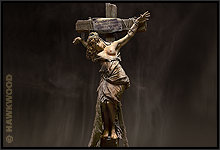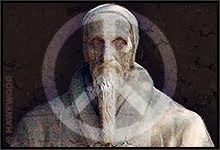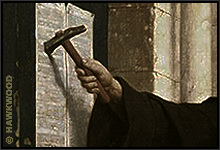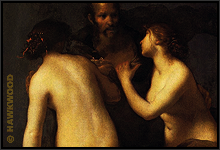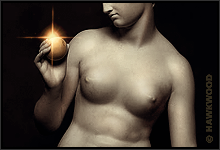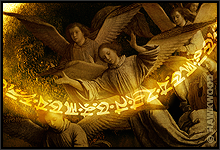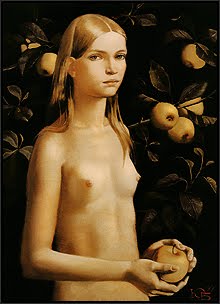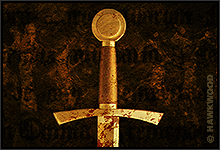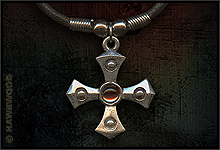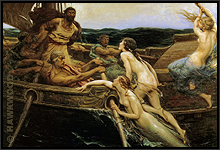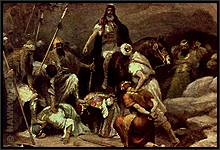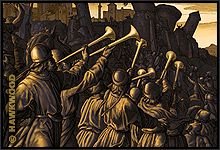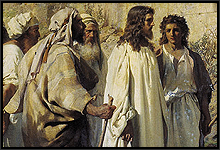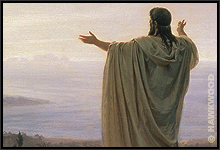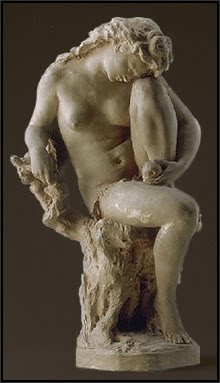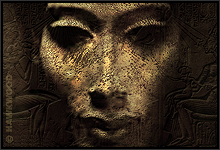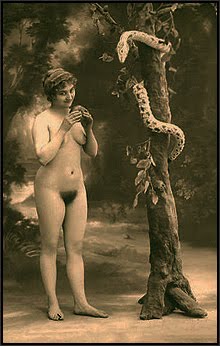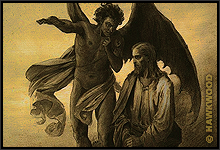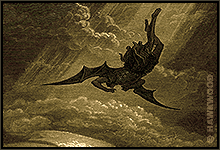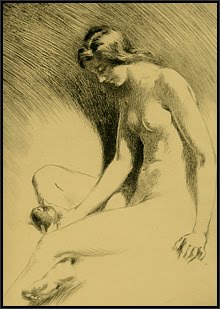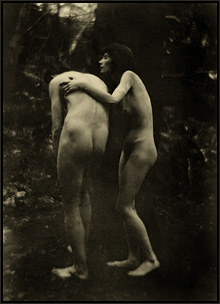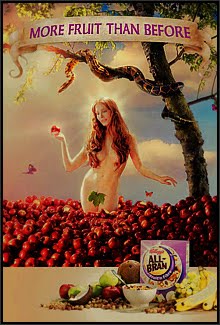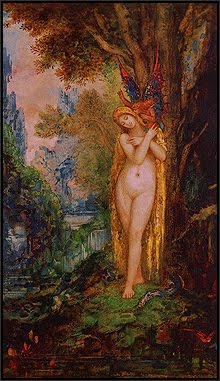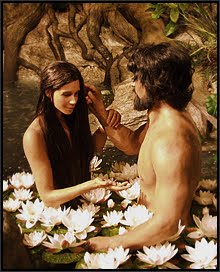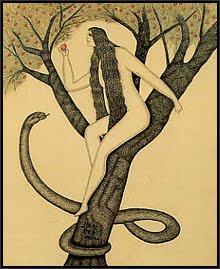I read a lot of books, and whatever I read I prefer to take on its own merits, which is to say that for me there is no distinction between a text which appears in scripture and any other text I might be reading, which for me makes all of literature a level playing field. This puts me in a different position from either the die-hard [1]atheist who might reject scripture in its entirety simply because it is scripture, and at the other end of the critical spectrum, the Christian Apologist who attempts to defend and excuse even the most recklessly immoral and inhuman episodes in scripture, and there sadly are enough of [2]these.
In dismissing scripture, I would suggest that the atheist misses much that is worthwhile. But in uncritically accepting it, the Apologist often-enough strives to justify the unjustifiable, and any innate sense of human moral worth is overruled by the mere fact that the offending (and offensive) events happen to appear ‘in scripture’. But what the stances of my hypothetical atheist and Apologist have in common is their lack of critical discrimination, of being unable to acknowledge either the merits or the shortcomings in such texts.
One book in scripture that is a favourite of mine is Ecclesiastes: The Preacher. Of modest length (it easily can be read in one sitting), it brims with simple wisdom and sagacious advice about negotiating one’s way, both in the world and through life itself. It is truly a text with heart. Indeed, the unknown author of this text actually says to us that ‘I communed with mine own heart.’ And that is the way it feels to us, his readers.
Let me now take another personal favourite from my bookshelf: the Edward Fitzgerald translation of The Rubáiyát of Omar Khayyám. Unlike Ecclesiastes, the identity of the author is not in doubt. As history informs us, he was the 11th-century Persian poet, mathematician and astronomer Omar ben Ibrahim al-Khayyami, known in the West as [3]Omar Khayyám. Omar might at first seem a very different world away from Ecclesiastes, but it is their similarities that intrigue.
Both texts reveal a deep wisdom, a practical vision of life and of death, and the stance necessary to face both. Both contain [4]phrases to which we respond so powerfully that they have passed into the language. Both offer a sense of true consolation, of offering a way through the convoluted course of life. Both acknowledge the futility of worldly vanity, the ultimate meaninglessness of material titles and possessions. Both openly agree that wisdom itself has its own limitations, and should not be placed above simple human responses to situations. These are among their similarities, but what of the differences?
Excepting the obvious differences of time and place, what at first seems like a clear difference between Omar and Ecclesiastes is the latter’s piety. When compared with Ecclesiastes’ reverence, and his urging his readers to place God centrally in their lives, Omar seems positively worldly. It is Omar who urges us not to take things too seriously, and it is Ecclesiastes who concludes by urging us to “fear God and keep his commandments.” But does he? Scholarship now considers that these overtly reverend verses of Ecclesiastes were inserted by a later hand, to give the text a greater sense of piety. If such later additions are removed, then it is as if the two voices, the one Persian, the other Hebrew, speak as one.
Of course there still remains a very obvious difference indeed: one is in scripture, and the other is not. So how did Ecclesiastes come to be a part of scripture? Its worldly voice seems to be a very different one from those in the scriptural books around it. One tradition suggests that Solomon was himself its author, and the great king’s name and status carried enough gravitas to have it accepted, although this claim is an attribution with little weight in scholarship. It also could be that its tacked-on ‘fear God..’ conclusion gave it the necessary weight to make it canonical, although this and other such phrases, as mentioned above, almost certainly were not part of the original text. The fact is that we simply do not know how or why Ecclesiastes ended up being part of scripture. Its inclusion remains a mystery.
But Ecclesiastes nevertheless is in scripture, which in turn reasonably invites a comparison with Omar Khayyám on these terms. Is what one of these voices says any more or less valid or meaningful than the other for this reason? Of course not. Both voices have equal validity, both in what they say and in what they offer to us, their readers. Both show a great depth of humanity, and in that humanity, both reach out to us in a meaningful way across the intervening centuries. With this perspective before us, that we read Omar in a secular context and Ecclesiastes in a scriptural one seems in the end to be down to mere happenstance, to the chances of history and of place.
Both of these literary voices are in this sense very much ‘conversations with the heart’. Both reveal to us an essential humanity, and comment profoundly on the human condition. The [5]line which we have drawn between the scriptural and the secular is one which we ourselves have created, and – at least when considering the voices of Ecclesiastes and Omar Khayyám – there is not a cigarette paper’s thickness between them.
Hawkwood
Notes:
[1] I am of course aware that not accepting scriptural authority also includes any non-Christian belief or religion, and that Judaism accepts the first five books – the Torah – as its own authority.
[2] Please see my post Frontier Justice in the Promised Land for chapter-and-verse references to some of these. The task of Christian Apologists is an unenviable one. They must excuse their way through a whole battery of atrocities which include the condoning of rape and slavery, the massacre of women and children, the agonizing death by stoning even for such trivial acts as your child's disobedience, and the actual human sacrifice to God of one's own child - and all of these in just the first seven of the sixty six books of scripture.
[3] For more about Omar and his verses, please see my posts Omar Khayyám and Through the Seventh Gate. It is often suggested that Fitzgerald’s translation is really more of a reinterpretation, more Fitzgerald’s own vision of things than Omar’s. If so, then for the purposes of my comparison in this post this simply puts it on the same footing as the English translation of Ecclesiastes, which has been filtered through Hebrew, Greek and Vulgate Latin to become the familiar resounding prose of the King James Version.
[4] Among the sayings originating in Ecclesiastes we find: all is vanity; the sun also rises; all the rivers run into the sea; there is nothing new under the sun, and; to everything there is a season. Omar Khayyám most famously offers us: The moving finger writes, and having writ, moves on.
[5] I have used Omar Khayyám as my example because to me his parallels with Ecclesiastes are so strikingly clear. But of course when considering such profound voices as Omar’s countrymen Rumi and Hafez, or the Bengali Nobel laureate Rabindranath Tagore (left), the whole idea that what is written in scripture is in some way inherently ‘better’, and has more to tell us than these and other such voices, simply becomes meaningless. The Golden Rule attributed to Jesus – do unto others as you would have them do unto you – was first uttered by Confucius three centuries before New Testament times.
Sources:
Martin A. Shields: The End of Wisdom: A Reappraisal of the Historical and Canonical Function of Ecclesiastes. Eisenbrauns, 2006.
Michael V. Fox: The JPS Bible Commentary: Ecclesiastes. Jewish Publication Society, 2004.
Jorge Luis Borges: The Enigma of Edward Fitzgerald, in Other Inquisitions, 1937-1952. University of Texas Press, 1964. Borges, usually so meticulous with literary facts, describes Omar Khayyám as an atheist. In fact, it has proven notoriously complex to unravel his personal beliefs, and he has been described as being everything from an agnostic hedonist to a Sufi mystic. I personally opt for the mystic. Fitzgerald might at times portray him as an earthy and wine-quaffing devil-may-care, but this particular Omar is largely one of Fitzgerald’s invention. Omar ben Ibrahim al-Khayyami also wrote a brilliant and ground-breaking treatise on algebra, as well as producing profound poetry and being an accomplished astronomer – hardly the profile of a drunken sot.
There are various editions of Edward Fitzgerald’s translation, several of them illustrated by noted artists. My own is: Rubáiyát of Omar Khayyám, Rendered into English Verse by Edward Fitzgerald, Illustrated in Colour and in Line by René Bull. Hodder and Stoughton, 1913. I bought this first edition many years ago for $33. An edition signed by the artist is now worth over $2,500.
The images for this post are adapted from the illustrations by Adelaide Hanscom Leeson for the 1905 edition of the Rubáiyát, published by Dodge. This American artist pioneered the use of photography as a medium for book illustration, and her originality in this field is more deserving of attention than it perhaps receives.

